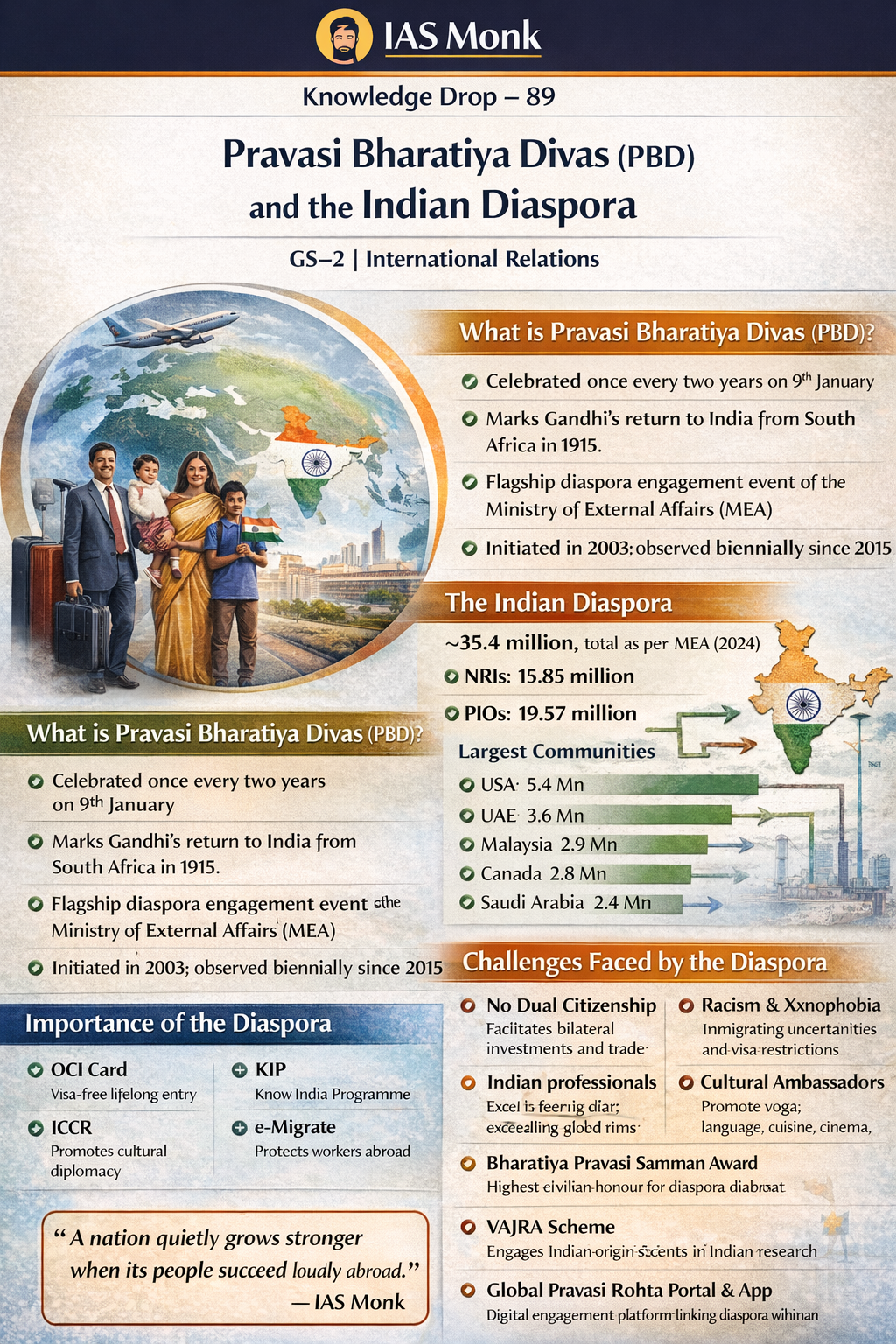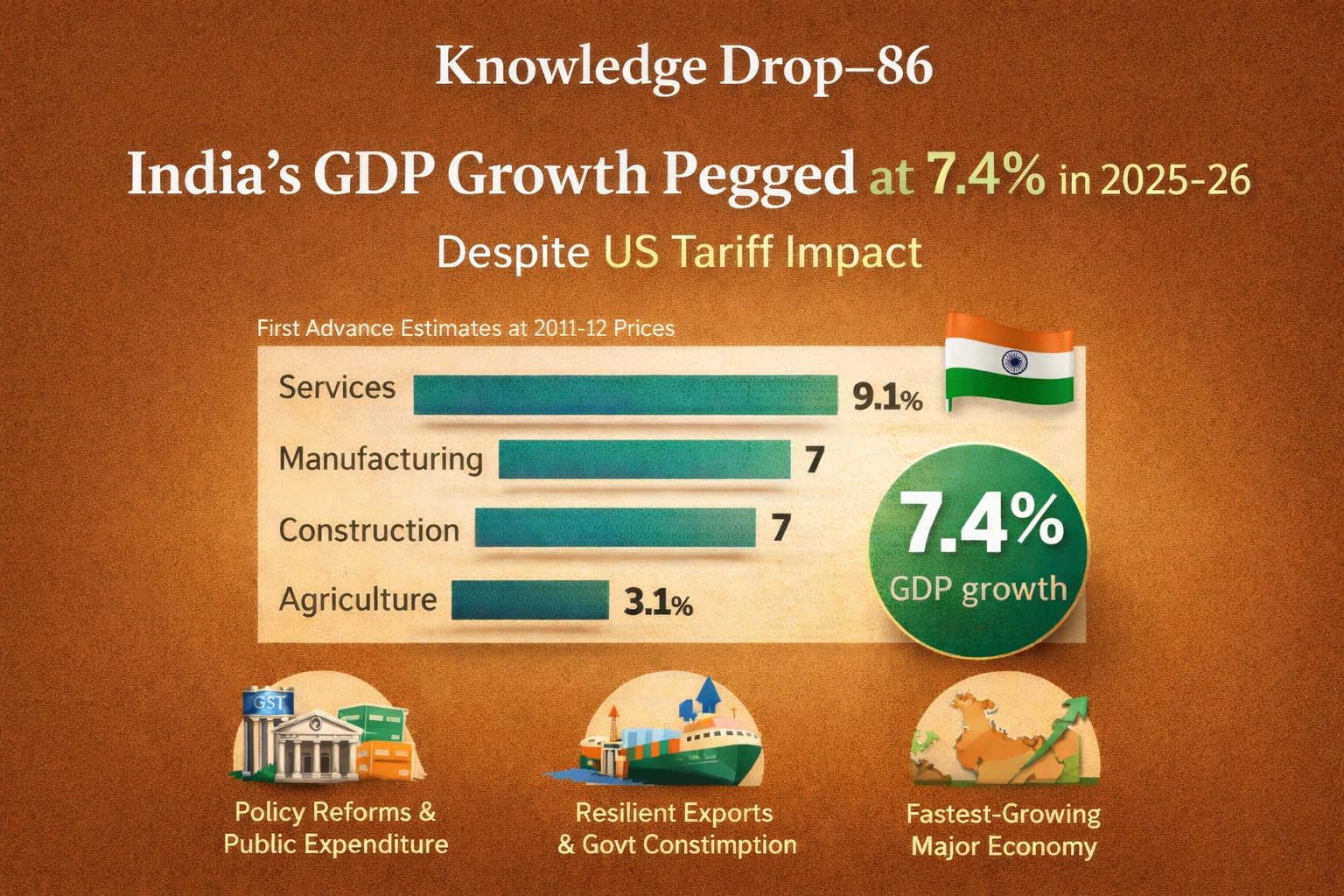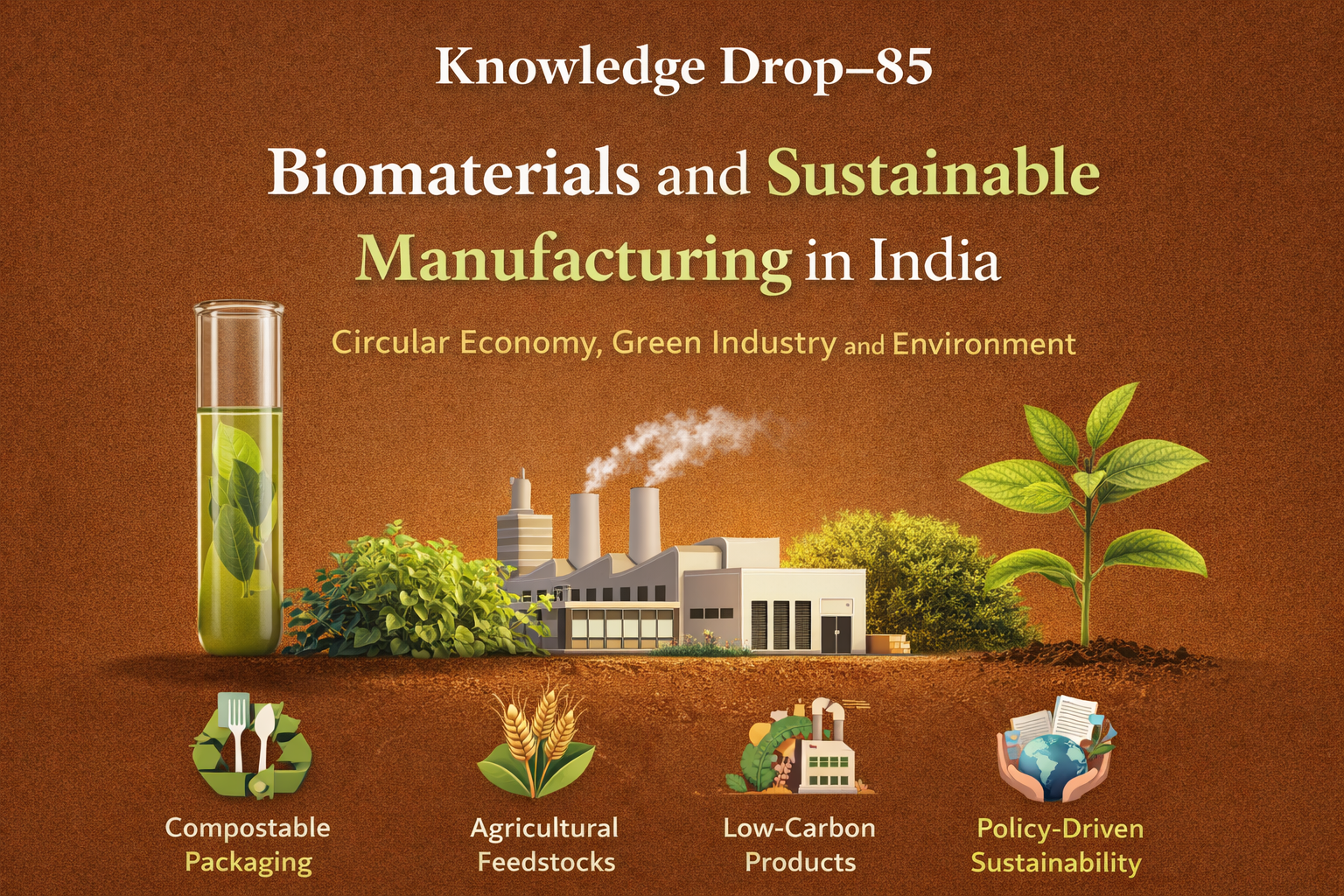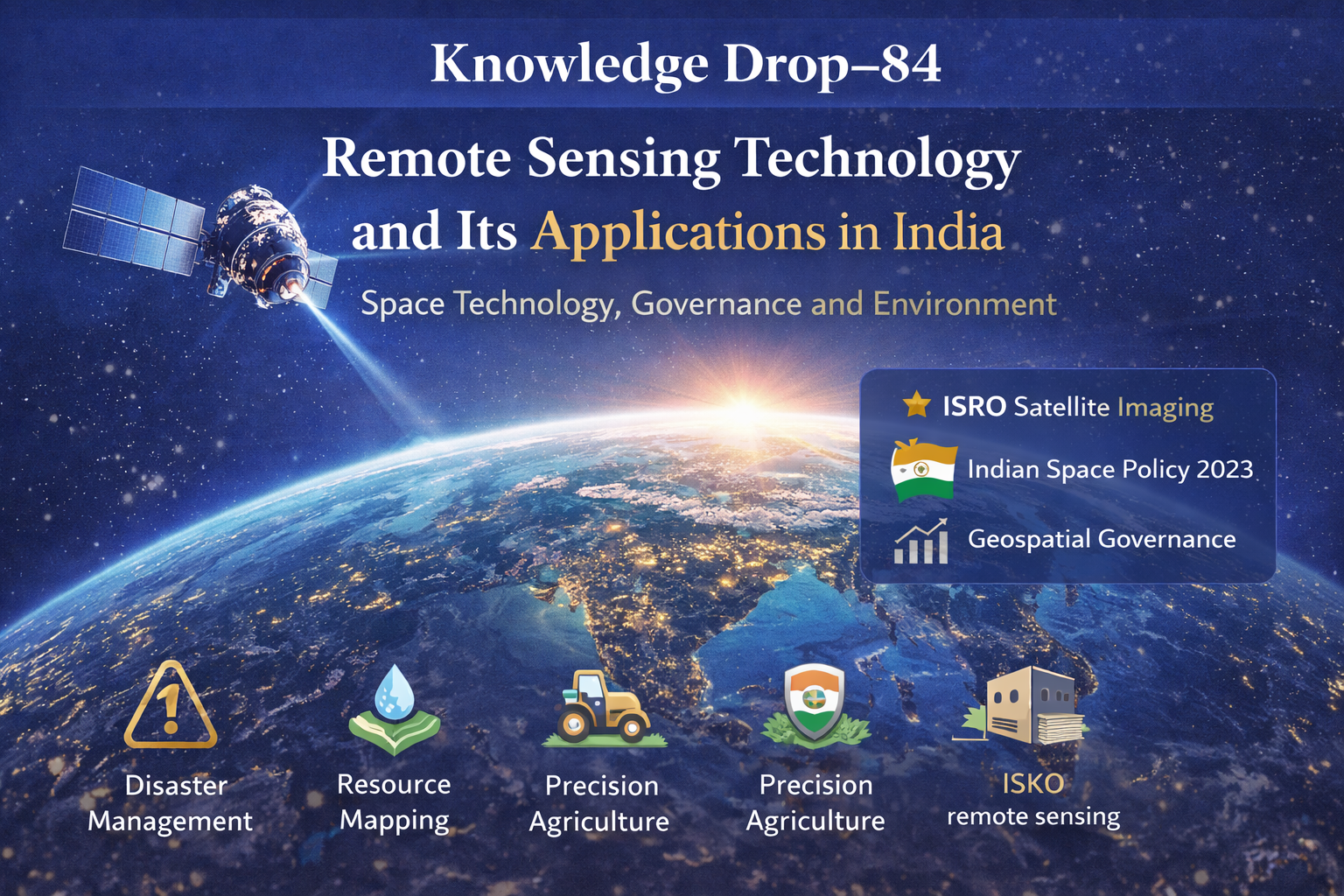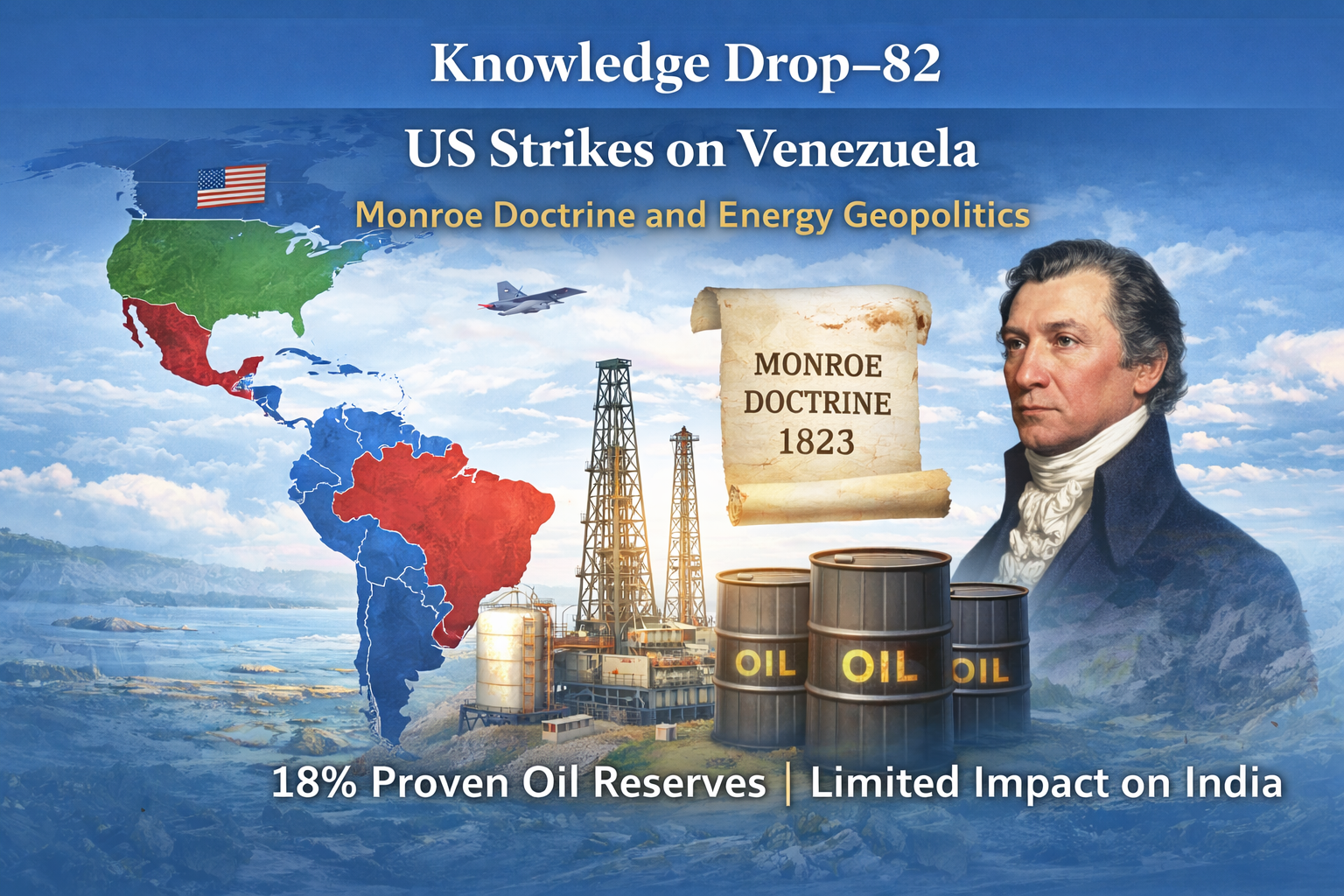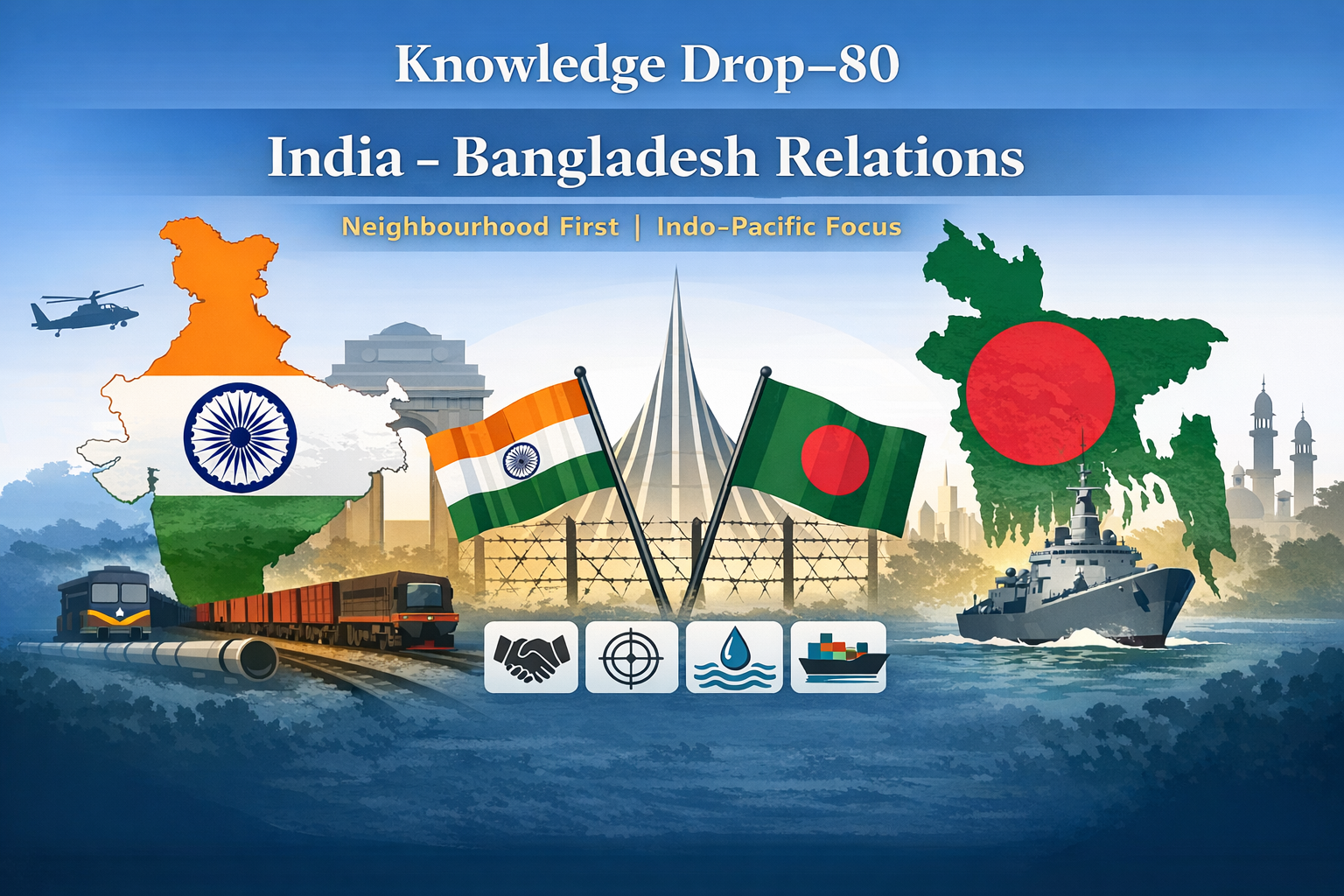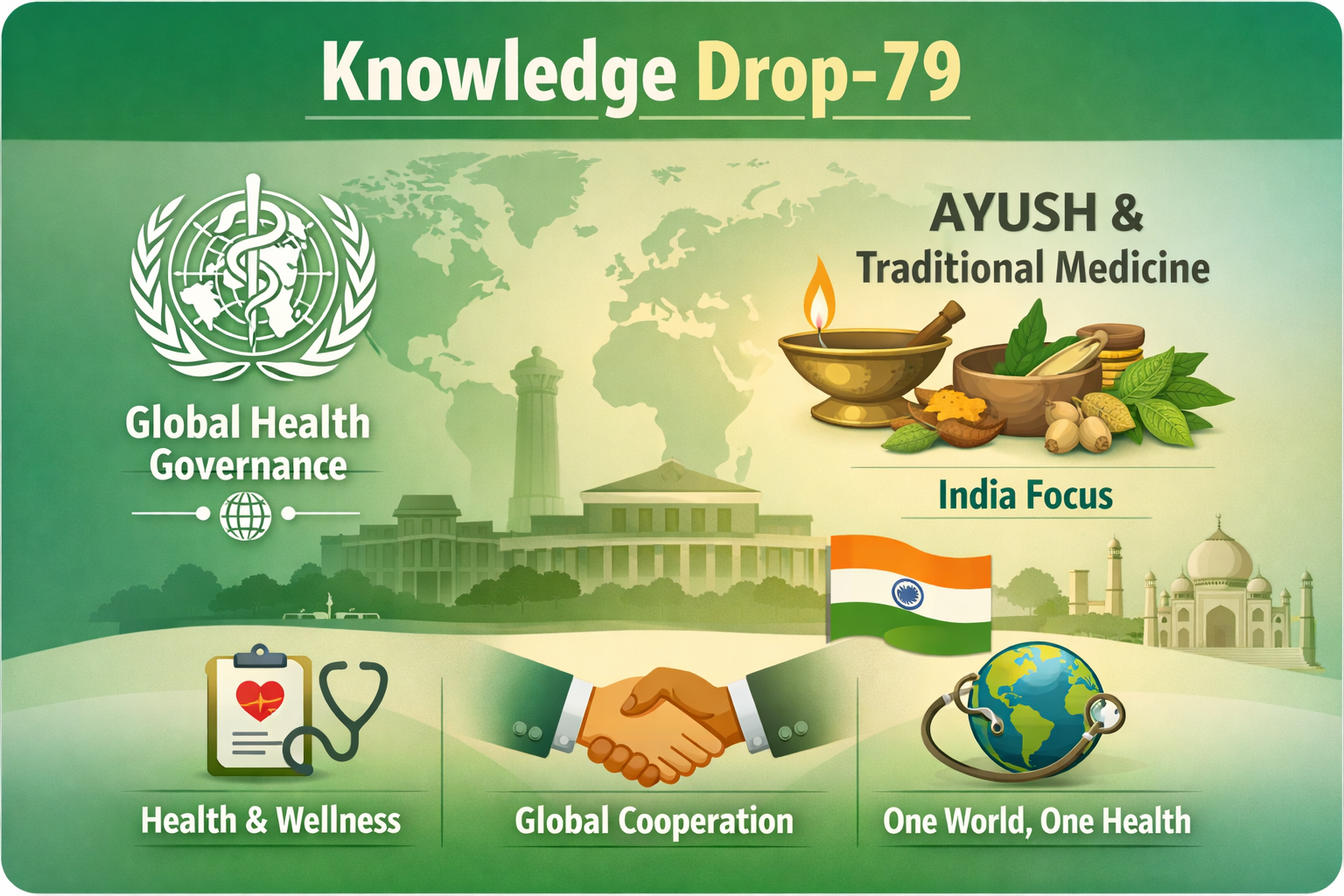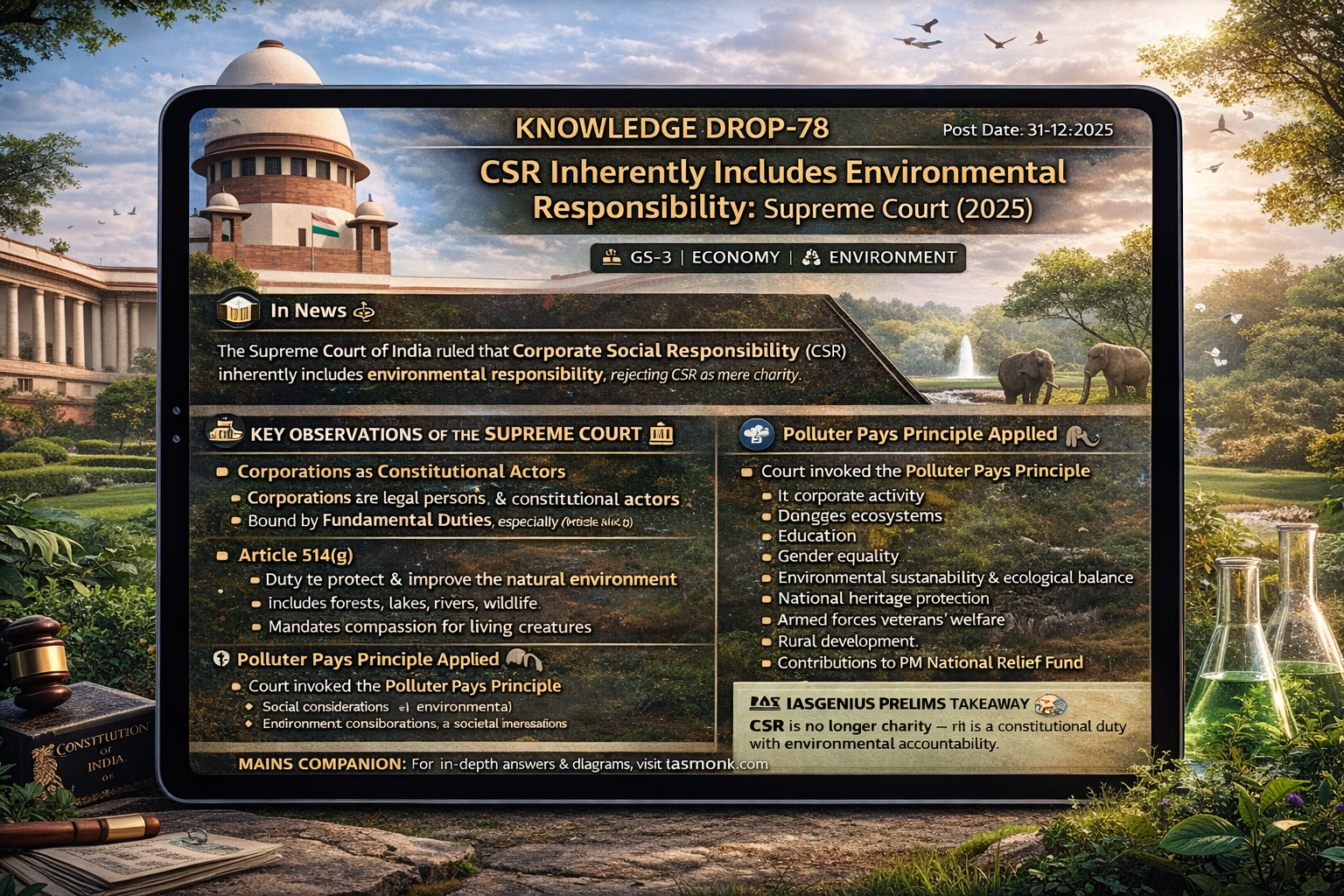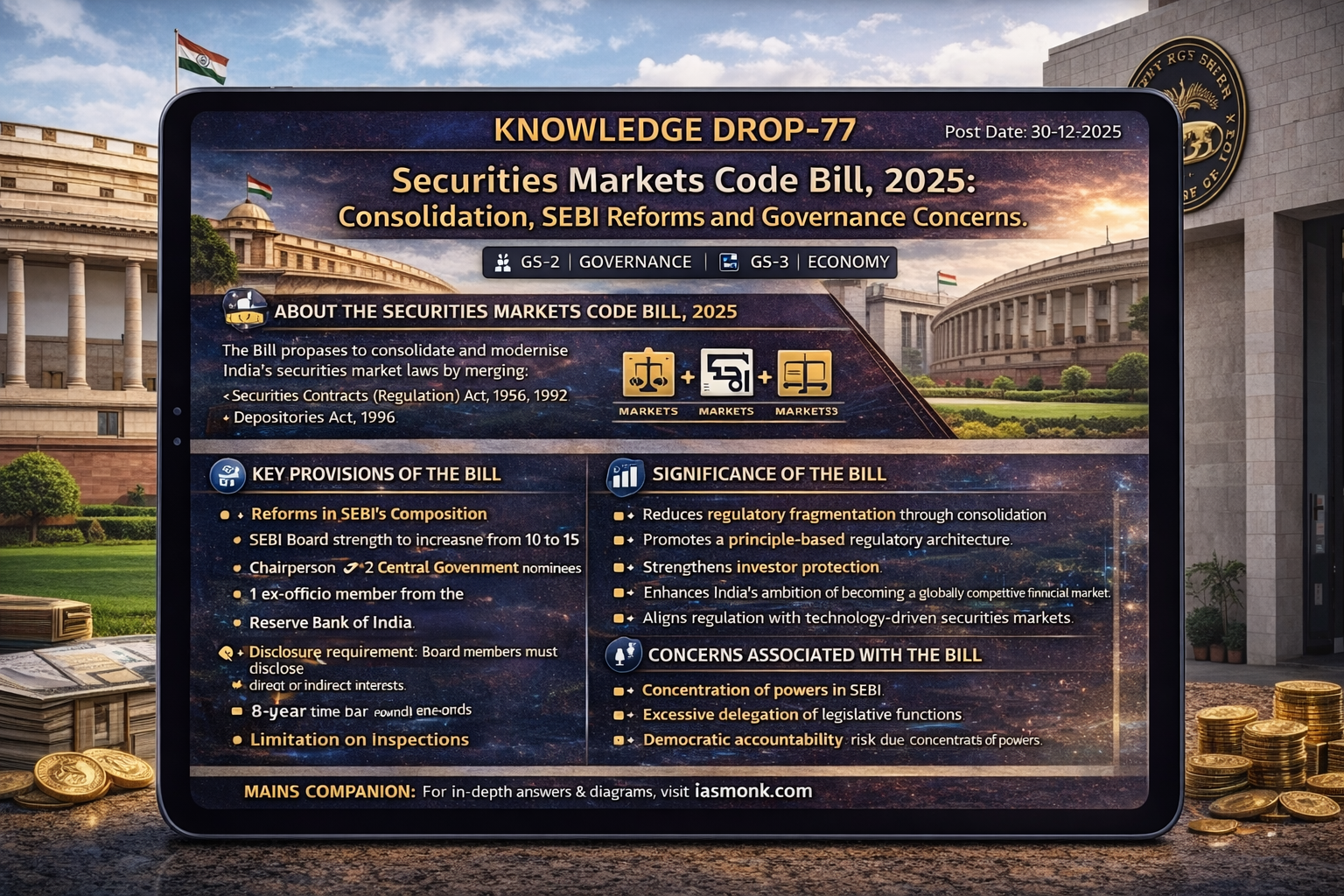
📅 May 4, 2025, Post 7: Crude Choices, Shifting Powers: India’s Energy Compass Redraws Itself | Mains Essay Attached | Target IAS-26 MCQs Attached: A complete Package, Dear Aspirants!
Crude Choices, Shifting Powers: India’s Energy Compass Redraws Itself

NATIONAL HERO — PETAL 007
May 4, 2025
🧭 Thematic Focus:
• Energy Security
• India–Russia–US Trade Relations
• Strategic Autonomy
• Global South Diplomacy
🌿 Opening Whisper:
“When the world burns in silence, a nation’s oil trail becomes a map of its alliances.”
📈 Key Highlights:
• India’s oil imports from Russia surged to a 9-month high in April 2025, reaching 1.918 million barrels per day (bpd), rising 2.1% over March.
• The share of Russian oil in India’s crude basket rose to 39.3%, up from 35.7% in March — despite India’s overall imports falling 7.3% sequentially.
• The boost is attributed to the availability of cheap Urals crude, sanctions loopholes, and disrupted Russian refinery operations (due to drone attacks), increasing export availability.
• Urals crude continues to trade below the G7’s price cap of $60/barrel, ensuring no shipping or insurance issues for Indian refiners.
• India’s US crude oil imports also rose to an 8-month high, hitting 337,000 bpd — a 16.5% jump from March. The US now holds 7% share in India’s oil basket.
• While private firm Reliance Industries has signed a term deal with Rosneft, public sector refiners like IOC are currently avoiding term contracts due to the volatile sanctions environment.
• Indian Oil Chairman emphasized that all oil procurement is commercial, not politically mandated, amid Trump administration’s increasing pressure to buy US oil and gas.
📘 Concept Explainer:
What Drives India’s Oil Import Strategy?
• Geopolitical Balancing: India is diversifying sources to balance West Asia, Russia, and the US amid rising sanctions and tariffs.
• Spot vs Term Contracts:
- Spot deals are one-time, flexible purchases — currently used for Russian oil.
- Term contracts are annual supply agreements offering price stability — no PSU term deals with Russia yet.
• Why Russian Oil is Attractive:
- Urals crude is discounted and suitable for Indian refineries.
- Even post-war, sanction enforcement remains porous.
- Russia’s domestic refinery disruptions freed up export volumes.
• Why US Oil is Rising:
- To balance trade with the US amid tariff threats.
- High-quality, light-sweet grades from the US suit Indian refiners.
- Strategic signaling to Washington without full realignment.
🛢️ Graph Insight:
📊 India’s Oil Import Trend (Aug 2024 – Apr 2025)
• Russia’s volumes dipped in late 2024 but rebounded in 2025.
• US volumes bottomed in Dec 2024 but recovered steadily to April 2025.
• April 2025: Russia at 1.918 million bpd, US at 337,000 bpd.
📌 GS Paper Mapping:
• GS Paper 2 – International Relations: India-US, India-Russia strategic diplomacy
• GS Paper 3 – Economy: Energy Security, Oil Pricing, Import Dynamics
• GS Paper 1 – World Affairs: Role of global oil politics
🪶 A Thought Spark — by IAS Monk:
“When the price of peace is calculated in barrels, the true currency is neither rupee nor ruble — but silence, strategy, and survival.”
High Quality Mains Essay For Practice :
Word Limit 1000-1200
A Drop of Oil Can Shake the World: Energy, Geopolitics, and the New Balance of Power
In the shimmering blackness of a single drop of oil lies the story of nations — of empires built and broken, of alliances forged and betrayed, of wars declared and borders redrawn. Oil is no longer just a commodity; it is a currency of power, a weapon of diplomacy, and often, the first domino in global instability. In today’s hyperconnected and energy-hungry world, a shift in oil flow patterns can unravel trade balances, trigger military interventions, and alter the very architecture of international order.
The idea that “a drop of oil can shake the globe” is not metaphorical exaggeration — it is a geopolitical truth written in pipelines, sealed with contracts, and fought over with sanctions. As the global energy equation enters a phase of flux — with the Ukraine war, US-China tensions, climate transitions, and emerging markets all playing a role — oil has once again emerged as the pulse of the planet’s political economy.
The Crude Foundations of Global Power
Oil’s centrality to modern civilization is beyond dispute. From fueling transport, manufacturing, aviation, and defense, to being a raw material for plastics and pharmaceuticals, oil underpins global growth. But its influence goes deeper — into national security doctrines, foreign policy strategies, and economic sovereignty.
Historically, access to oil has determined the rise and fall of powers:
- The British Empire’s naval supremacy was maintained through access to Persian Gulf oil.
- The US dollar’s dominance is buttressed by the petrodollar system, whereby global oil trade is denominated in USD.
- Japan’s WWII expansionism and Germany’s invasion of the Caucasus were fueled by energy insecurity.
- The 1973 Arab Oil Embargo brought Western economies to their knees, triggering inflation and recession.
Contemporary Oil Wars: Russia, the US, and the Shifting Poles
In the 21st century, oil remains at the heart of global power games, but the landscape is changing:
- Russia uses oil and gas as its strategic leverage, especially in Europe and Asia. Despite sanctions post-Ukraine invasion, India and China emerged as top buyers, showcasing energy’s role in non-alignment and national interest.
- The United States, once a net importer, has become the world’s largest oil producer due to its shale revolution. This has transformed its geopolitical calculus — with energy exports now a diplomatic tool, especially against trade surplus nations.
- West Asia, particularly Saudi Arabia and the UAE, has reoriented its oil strategy through OPEC+ cooperation with Russia, reducing dependence on the West and influencing global prices.
India, with 85% crude oil import dependence, finds itself navigating this turbulent sea. The recent rise in oil imports from Russia and strategic diversification through US imports reflect India’s tightrope walk — balancing cost, supply security, and diplomatic pressures.
The Sanctions Web and the Shadow Trade
Oil’s geopolitical volatility is most visible in the weaponization of sanctions. The G7 price cap on Russian oil at $60/barrel is designed not just to punish Moscow but to redesign global oil logistics. However, enforcement remains weak, and a new grey market of shadow tankers, alternate insurance schemes, and trader networks has emerged — with countries like India maintaining the stance: “We will buy if it’s not sanctioned.”
In parallel, the US uses oil exports to counterbalance trade deficits and exert influence over allies. The Trump administration’s tariff actions and push for increased US oil imports by countries like India show how oil is increasingly integrated into trade deals, security arrangements, and even electoral strategies.
Economic Tremors and Political Aftershocks
Even minor disruptions in oil flows can trigger macroeconomic shocks. A price spike due to war, embargo, or supply disruption:
- Inflates global transport and food costs
- Fuels inflationary pressures and monetary tightening
- Strains import-dependent economies (like India and Sri Lanka)
- Worsens current account deficits and weakens currencies
- Provokes public protests, fuel rationing, and even regime changes
In short, oil is not just energy — it is economic oxygen. Its scarcity suffocates.
Oil and the Global South: Between Leverage and Vulnerability
For emerging economies like India, Indonesia, Brazil, and South Africa, oil represents both opportunity and trap:
- On one hand, discounted oil from Russia has eased import bills and supported growth.
- On the other, their dependence makes them pawns in big-power games — pressured by sanctions, seduced by deals, and vulnerable to supply shocks.
This is why energy security has become a core part of strategic autonomy. India’s push for diversified sourcing, term contracts, refinery upgradation, and green energy transition is not just economic policy — it is foreign policy in action.
From Black Gold to Green Horizons: The Transition Crisis
While fossil fuels remain dominant, the climate crisis and net-zero commitments have triggered a push for renewables, EVs, and hydrogen. But the transition itself is fraught with geopolitical uncertainty:
- Oil-rich states fear obsolescence and are hedging through SWFs, tech investments, and carbon pricing diplomacy.
- Mineral-rich nations (for lithium, cobalt) are becoming the new frontiers of energy colonialism.
- China’s control over green tech supply chains adds another layer of strategic tension.
Ironically, the energy transition is not reducing oil’s relevance yet — it is reshaping who controls what in the new order.
Philosophical Reflection: Why a Drop Shakes the World
Oil disturbs not just because of its volume, but because of what it represents: desire, dependence, and disconnection. As the philosopher Martin Heidegger warned, when nature is seen only as a “standing reserve” — a warehouse of resources to be extracted — we lose our ability to dwell meaningfully.
A drop of oil shakes the globe because we’ve built civilizations atop combustion, and now we struggle to imagine alternatives. The planet spins not on an axis, but on pipelines, petrodollars, and policy swings. This imbalance makes every drop volatile.
Conclusion: From Fragility to Resilience
As the world reorients its energy compass, it must learn a simple truth — true stability does not come from controlling oil, but from controlling our dependence on it. Strategic diversification, ethical sourcing, ecological responsibility, and shared technology must replace coercion and cartelisation.
India’s recent oil shifts — balancing between Russia, the US, and West Asia — are signs of mature diplomacy. But the real measure of strength will be when India no longer has to choose between crude costs and strategic conscience.
Until then, every drop will remain loaded — not just with hydrocarbons, but with history, hegemony, and hope.
Closing Quote:
“The world does not run on oil; it runs on the choices we make about oil.” — IAS Monk
Target IAS-26: Daily MCQs: May 4, 2025
📌 Prelims Practice MCQs
Topic:
📘 MCQ 1: India’s Oil Import Dynamics – Russia & US
How many of the following statements are correct regarding India’s oil imports from Russia and the US as of April 2025?
•1) India imported more oil from the US than from Russia in April 2025.
•2) Russian oil accounted for over one-third of India’s total oil imports.
•3) India’s oil imports from the US rose to an 8-month high in April.
•4) Russia’s Urals crude continues to be priced above the G7 price cap.
A) Only two
B) Only three
C) All four
D) Only one
🌀 Didn’t get it? Click here (▸) for the Correct Answer & Explanation
✅ Correct Answer: A) Only two
🧠 Explanation:
•1) ❌ Incorrect. India’s oil imports from Russia (1.92 million bpd) far exceeded those from the US (337,000 bpd).
•2) ✅ Correct. Russian crude made up 39.3% of India’s oil basket in April.
•3) ✅ Correct. US oil imports rose to an 8-month high, signaling diversification.
•4) ❌ Incorrect. Urals crude is still trading below the $60/barrel cap, allowing easier transport and insurance access.
Hence, statements 2, 3, and only those two are correct.
📘 MCQ 2: Strategic Importance of Oil in Global Diplomacy
How many of the following highlight the strategic role oil plays in international relations and trade?
•1) Oil flows determine military alliances, trade patterns, and foreign policy leverage.
•2) Spot contracts offer greater pricing stability than term contracts.
•3) The US promotes oil exports as a tool to reduce trade deficits and exert influence.
•4) Energy diversification strengthens a country’s strategic autonomy.
A) Only two
B) Only three
C) All four
D) Only one
🌀 Didn’t get it? Click here (▸) for the Correct Answer & Explanation
✅ Correct Answer: B) Only three
🧠 Explanation:
•1) ✅ Correct. Oil shapes alliances, sanctions, and strategic dependencies.
•2) ❌ Incorrect. Term contracts, not spot contracts, provide pricing stability.
•3) ✅ Correct. The US leverages oil exports in trade deals and geopolitical outreach.
•4) ✅ Correct. Energy diversification boosts independence and negotiation power.
Hence, statements 1, 3, and 4 are correct.
📘 MCQ 3: Philosophy of Energy Dependence
Which of the following philosophical insights apply to the role of oil in geopolitics?
•1) Excessive dependence on oil reflects civilization’s failure to imagine alternatives.
•2) Resource nationalism can trigger instability when energy is weaponized.
•3) Oil is a neutral commodity with no bearing on power or inequality.
•4) Ethical use and shared transition are keys to long-term global resilience.
A) Only two
B) Only three
C) All four
D) Only one
🌀 Didn’t get it? Click here (▸) for the Correct Answer & Explanation
✅ Correct Answer: B) Only three
🧠 Explanation:
•1) ✅ Correct. Oil dependence is described as a failure of imaginative governance.
•2) ✅ Correct. Weaponization of oil has often triggered geopolitical instability.
•3) ❌ Incorrect. Oil is deeply political, shaping power structures and inequality.
•4) ✅ Correct. Ethical sharing and green transitions are part of the philosophical remedy.
Hence, statements 1, 2, and 4 are correct.


